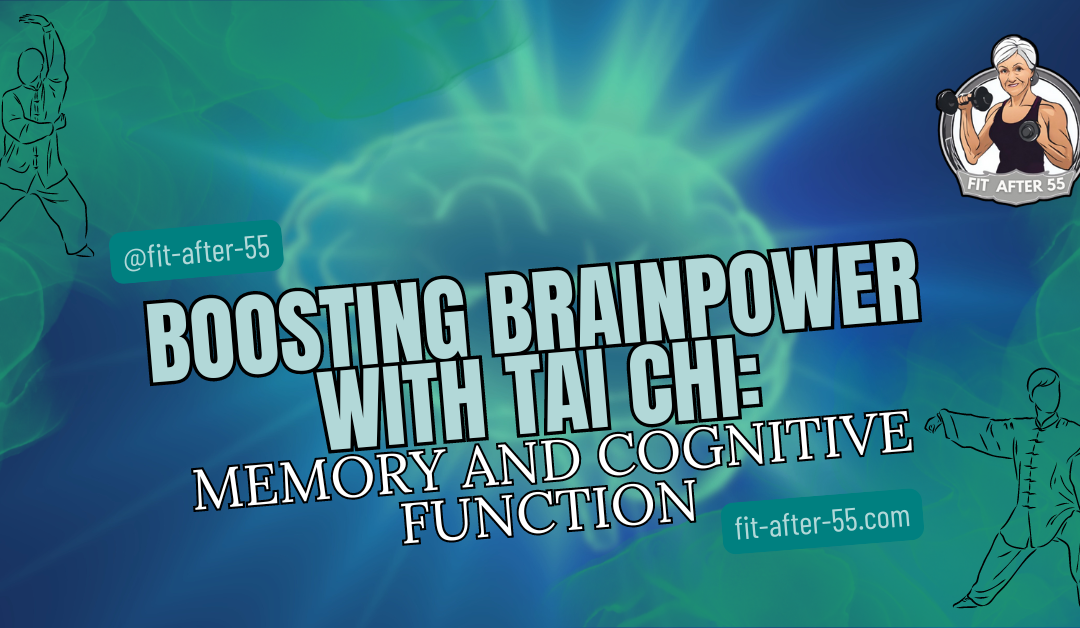Boosting brainpower with Tai Chi offers a holistic and effective way to enhance memory and cognitive function, particularly as we age. This ancient Chinese martial art, known for its slow and flowing movements, engages the mind and body, promoting mental clarity and focus. Studies have shown that practicing Tai Chi can reduce cognitive decline, sharpen concentration, and even improve the brain’s ability to retain information. By blending movement with mindfulness, Tai Chi becomes more than just physical exercise—it’s a tool for mental wellness.
If you’re seeking a natural and accessible way to boost your brain health, Tai Chi might be the perfect solution. Whether you aim to improve memory, increase attention span, or simply maintain cognitive sharpness, this gentle practice provides long-term benefits beyond physical fitness. Embrace the connection between body and mind, and discover how Tai Chi can play a key role in enhancing your cognitive abilities for years to come.
Boosting Brainpower with Tai Chi: Memory and Cognitive Function – A Gentle Path to Mental Sharpness
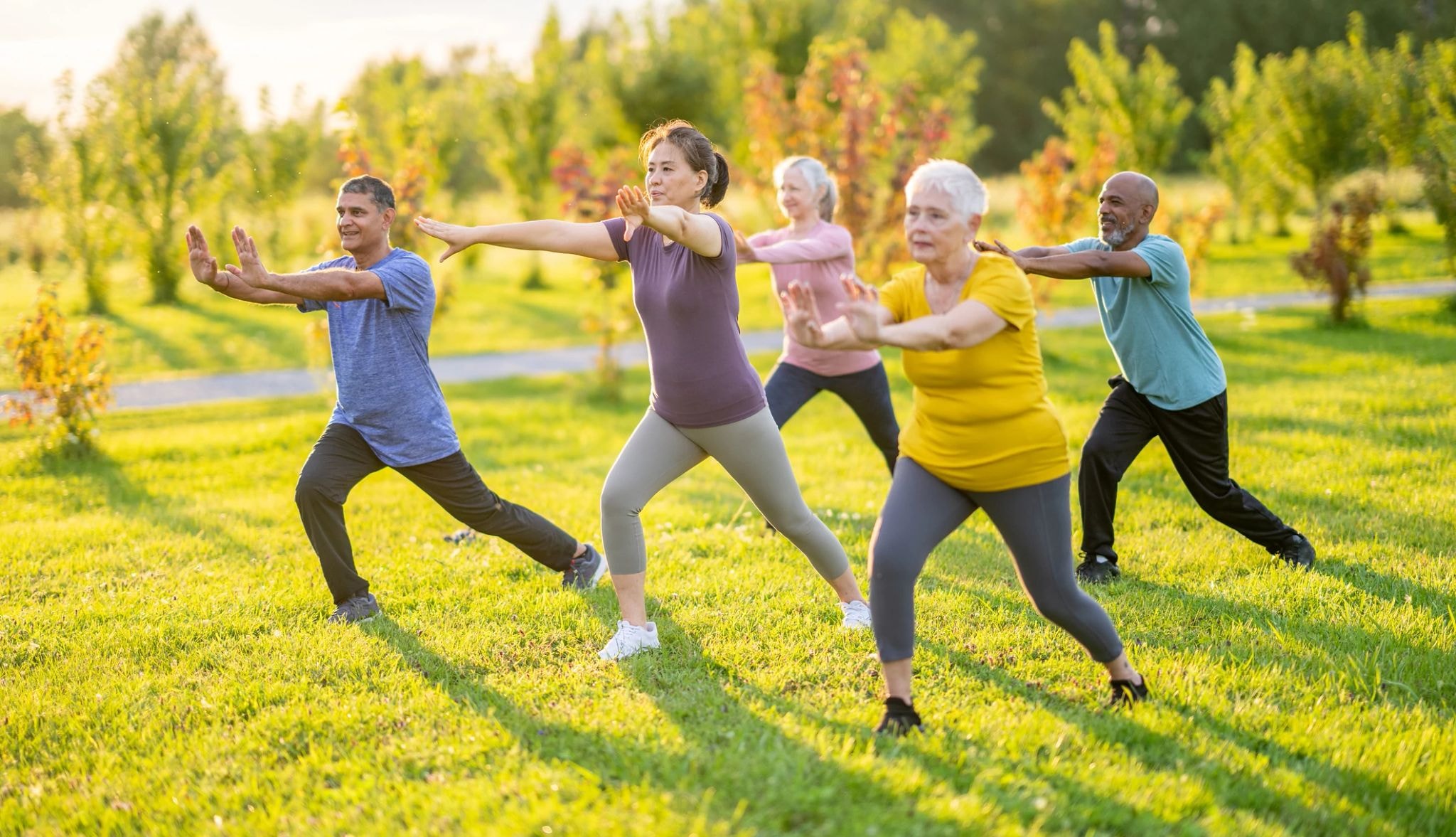
Are you looking to sharpen your mind and boost your memory? Boosting brainpower with Tai Chi might be the answer you’re searching for. This ancient Chinese practice combines slow, graceful movements with deep breathing and meditation. Tai Chi can improve cognitive function, including your ability to multitask, manage time, and make decisions.
Research shows that a daily dose of Tai Chi can benefit both your body and brain. It’s not just about physical exercise – Tai Chi is a form of moving meditation that uniquely engages your mind. By focusing on your movements and breath, you’re also giving your brain a workout.
Want to supercharge your Tai Chi practice? Try adding some brain games to the mix. Studies have found that combining Tai Chi with word games can double the boost to your memory. This combo might be just what you need to keep your mind sharp and agile as you age.
Key Takeaways
- Regular Tai Chi practice can improve memory, decision-making, and overall cognitive function, which is especially beneficial for older adults.
- Engaging in Tai Chi stimulates the brain, fostering new neural connections and potentially increasing brain volume, which supports learning and memory.
- Tai Chi merges physical movement with mindfulness, making it an effective tool for mental wellness and cognitive sharpness.
- Studies suggest that Tai Chi may slow cognitive decline and lower the risk of dementia by enhancing memory and attention skills.
- Combining Tai Chi with other exercises or brain games can further boost cognitive function, making it a versatile practice for mental agility.
The Science Behind Tai Chi and Cognitive Function
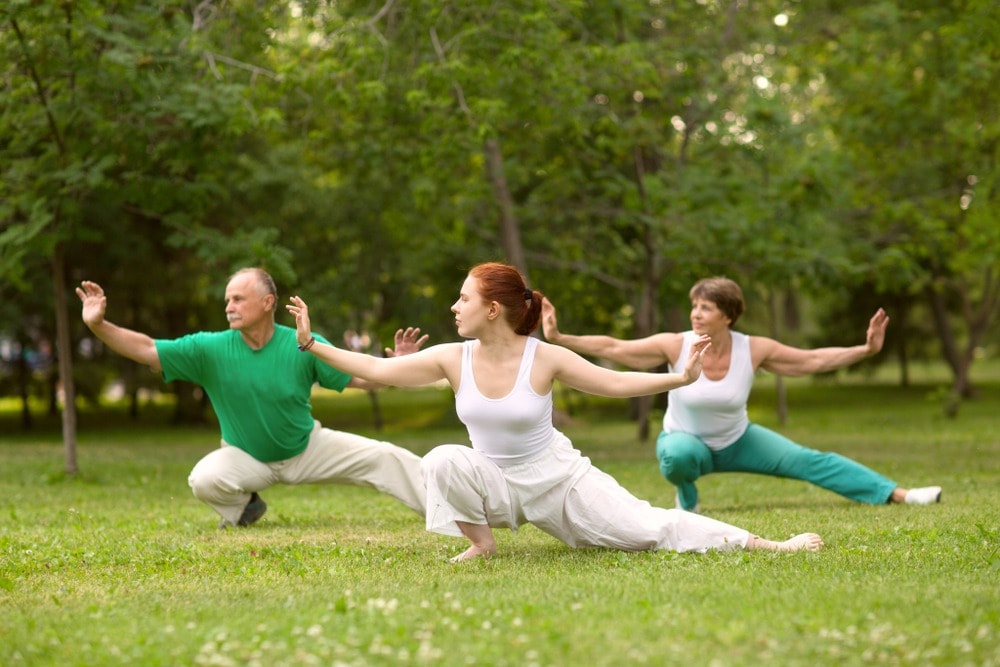
Boosting brainpower with Tai Chi offers remarkable benefits for your brain health. This ancient practice can enhance memory, decision-making, and cognitive abilities. Let’s explore how Tai Chi works its magic on your mind.
Understanding Cognitive Function
Cognitive function covers your ability to think, learn, and remember. It includes skills like attention, problem-solving, and processing information. As you age, these abilities can decline. Cognitive impairment affects many older adults.
It ranges from mild memory issues to more severe conditions like dementia. But don’t worry – you can take steps to keep your mind sharp. Tai Chi may help prevent or slow cognitive decline. It combines physical movement with mental focus. This unique blend makes it a powerful tool for brain health.
Tai Chi and Neuroplasticity
Your brain has a fantastic ability to change and grow. This is called neuroplasticity. Tai Chi can boost this process in several ways. When you practice Tai Chi, you:
- Learn new movements
- Focus on your breath.
- Coordinate your body and mind.
These activities stimulate your brain, creating new neural connections. Over time, this can increase your brain volume and gray matter density. Tai Chi may even help grow your hippocampus. This brain area is crucial for memory and learning. By nurturing neuroplasticity, Tai Chi keeps your mind flexible and resilient.
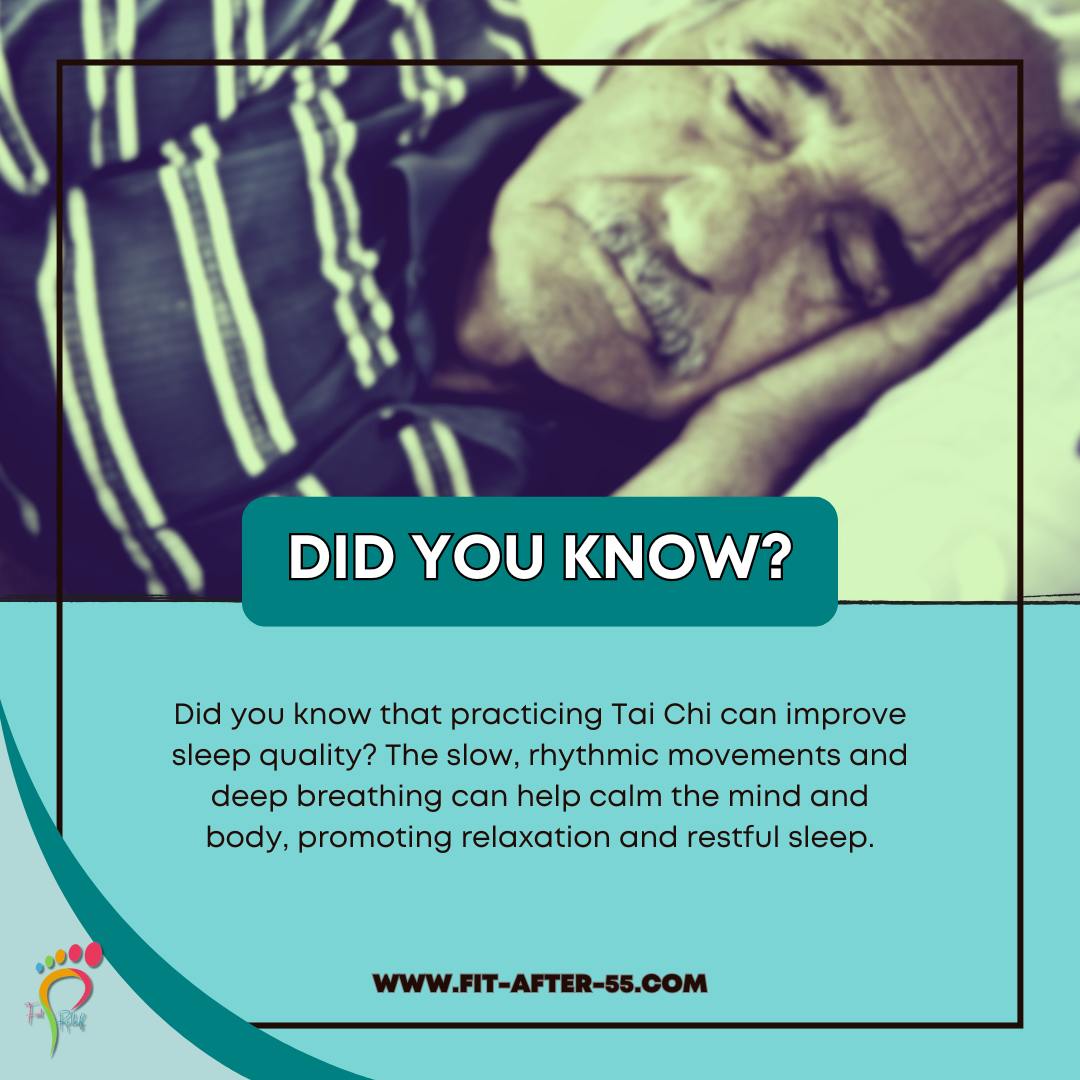
Effects of Tai Chi on Aging Minds
As you age, Tai Chi can be a valuable ally for your brain. It offers a gentle yet effective way to maintain cognitive function. Studies show that Tai Chi can improve memory in older adults. It’s especially helpful for those with mild cognitive impairment. Tai Chi’s benefits go beyond memory. It can enhance:
- Attention span
- Executive function (decision-making and multitasking)
- Processing speed
Regular practice may even lower your risk of dementia. By combining physical activity with mental engagement, Tai Chi provides a unique boost to your aging brain.
Evidence-Based Benefits of Tai Chi
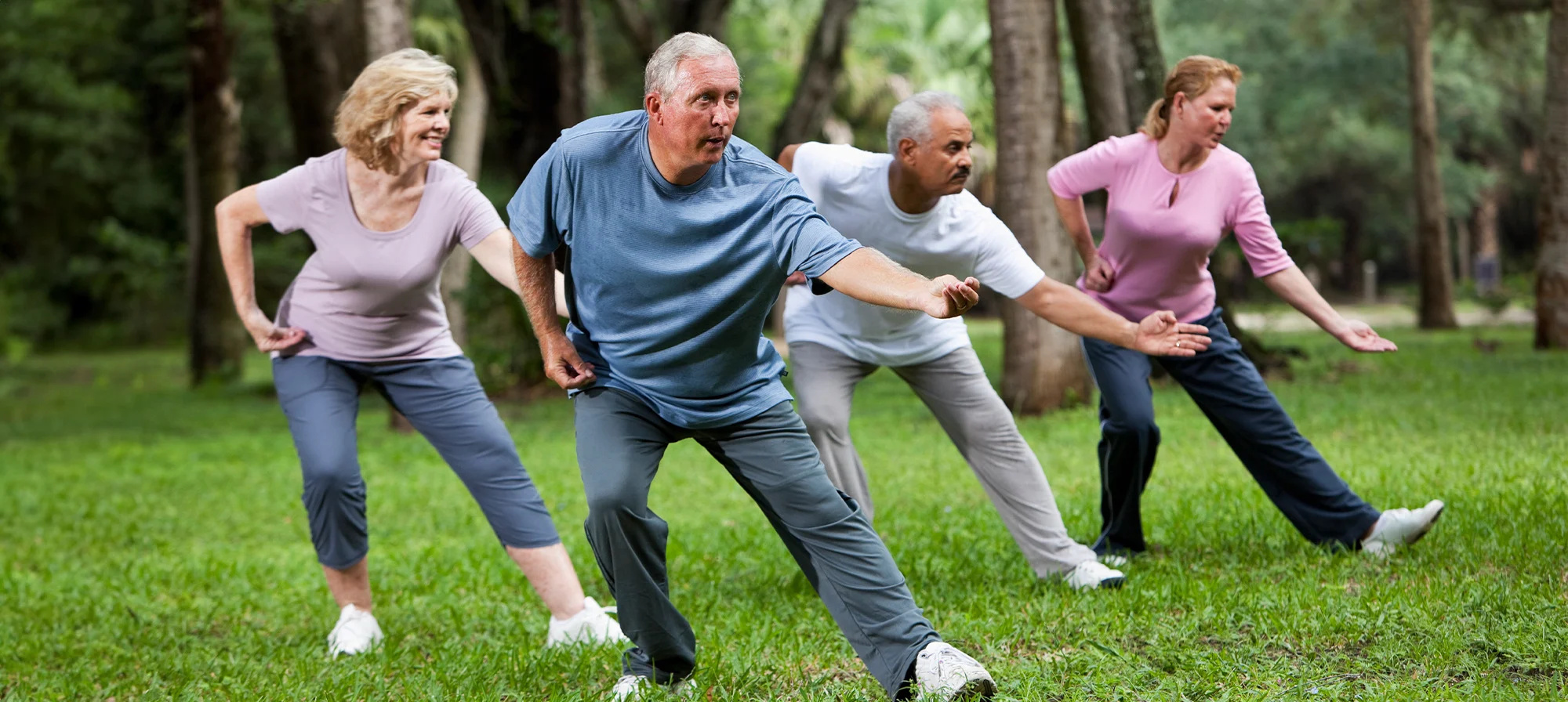
Boosting brainpower with Tai Chi offers many brain-boosting benefits backed by scientific research. Studies show it can help sharpen your memory, focus, and thinking skills as you age.
Improvement of Memory and Attention
Tai Chi can give your memory and attention a big lift. A meta-analysis of 20 studies found that Tai Chi improved cognitive function in older adults. This gentle exercise helps boost your working memory.
That’s the part of your brain that holds onto information briefly while you use it. Tai Chi also sharpens your attention. You’ll find it easier to focus on tasks and ignore distractions. This can help you in your daily life, from work to hobbies.
Enhancing Executive Function and Concentration
Your executive function gets stronger with Tai Chi. This includes skills like planning, decision-making, and switching between tasks. A systematic review found that Tai Chi improved cognitive function in different groups of people.
The Trail Making Test, which measures executive function, showed better scores after Tai Chi practice. You’ll also notice better concentration. Tai Chi’s slow, focused movements train your brain to stay on task. This can help you at work or when learning new things.
Tai Chi as a Preventative Intervention
Tai Chi may help keep your brain young. It could slow down or even prevent cognitive decline as you age. Research shows regular Tai Chi practice is linked to better memory and brain health. It might even change your brain structure in positive ways.
Adding Tai Chi to your routine could be smart for long-term brain health. It’s a gentle, low-impact exercise that’s safe for most people. Plus, it’s fun and relaxing!
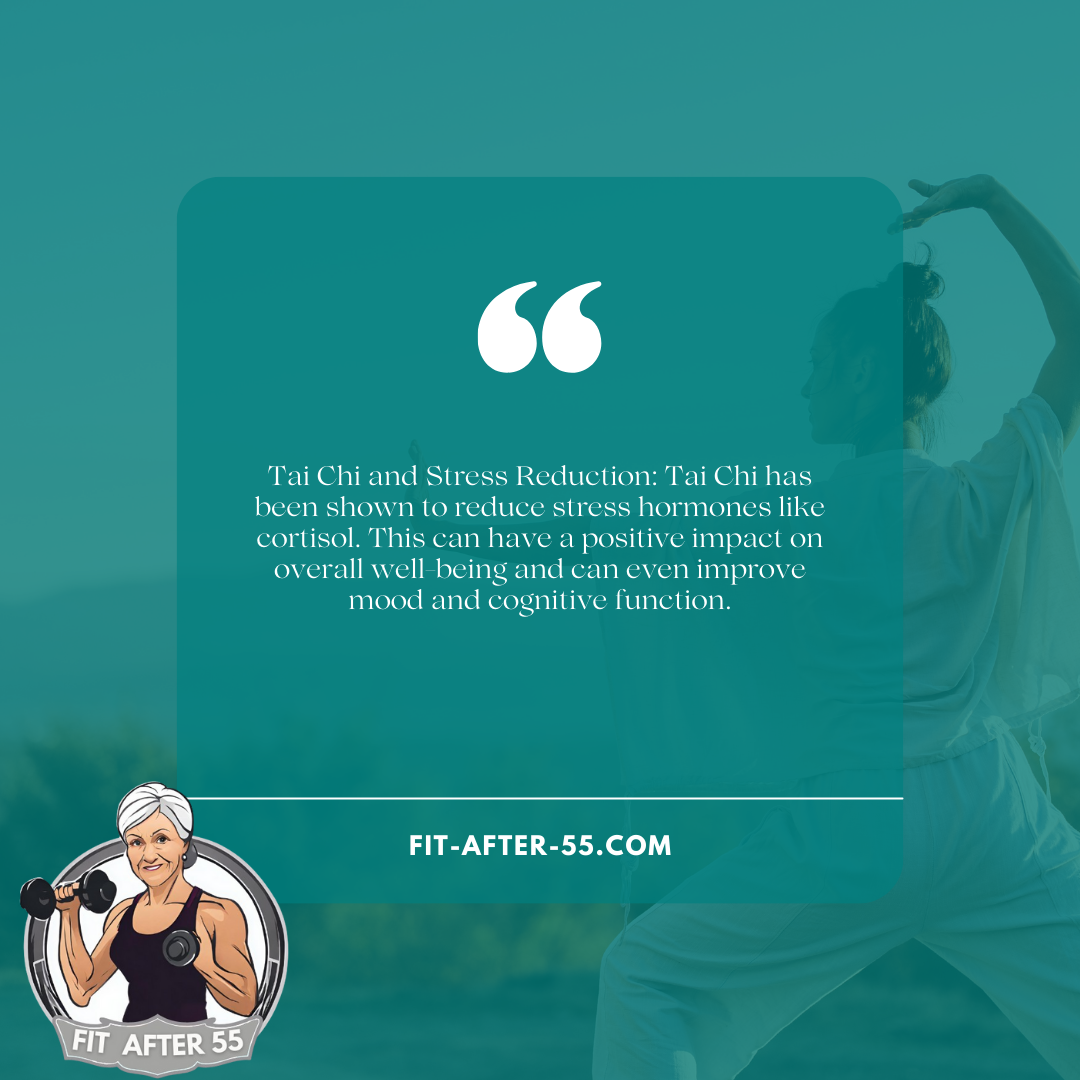
Did You Know?
Tai Chi is generally safe for older adults, and its gentle, low-impact nature makes it a good choice for seniors. However, as with any exercise, starting slowly and listening to the body is essential. If there are health concerns, consulting a doctor before Tai Chi is advisable.
Check out this video on Tai Chi exercises to boost brain health, relieve pain, and more.
By: Taichi Zidong
Mental Health and Tai Chi
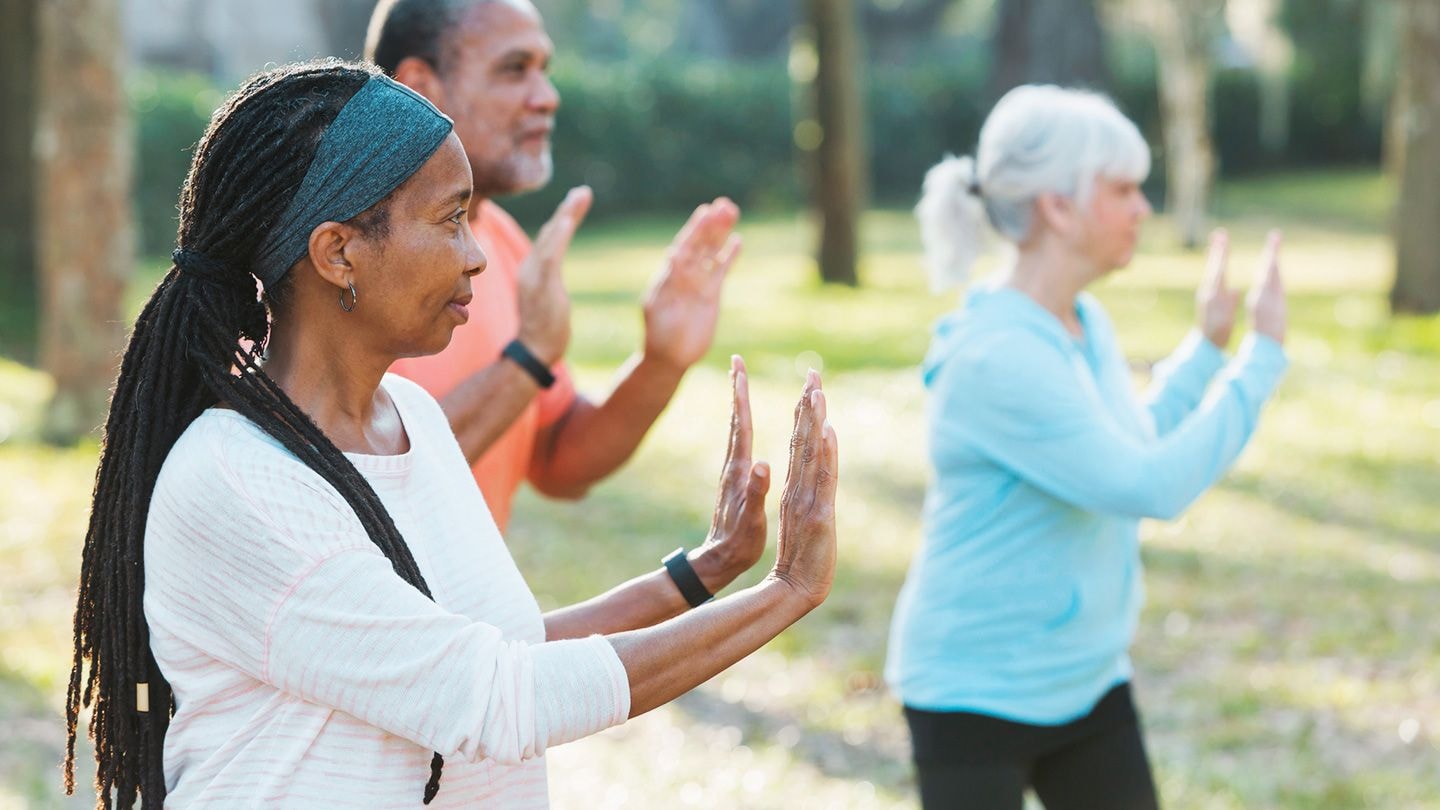
Boosting brainpower with Tai Chi can greatly benefit your mind and emotions. This gentle exercise helps your brain and mood in several ways.
Reducing Symptoms of Depression and Anxiety
Tai Chi practice can lift your spirits and calm your nerves. The slow, flowing movements help you focus on the present moment. This takes your mind off worries and negative thoughts. Tai Chi also gets you moving and breathing deeply. This releases feel-good chemicals in your brain. Many people say they feel more relaxed and happy after doing Tai Chi.
You might find it easier to cope with stress when you do Tai Chi regularly. The peaceful motions can lower stress hormones in your body. This leaves you feeling more calm and balanced.
Improving Sleep Quality and Emotional Health
Tai Chi can help you get better sleep at night. The gentle exercise tires your body in a good way. The calming effects also quiet your mind before bed. When you sleep well, you often feel better during the day. You may have more energy and a brighter mood.
Tai Chi gives you tools to handle your emotions better, too. The mindful focus of Tai Chi teaches you to notice your feelings without getting stuck in them. This skill can help you stay calm in tough times. You might find it easier to bounce back from setbacks.
Practical Applications of Tai Chi
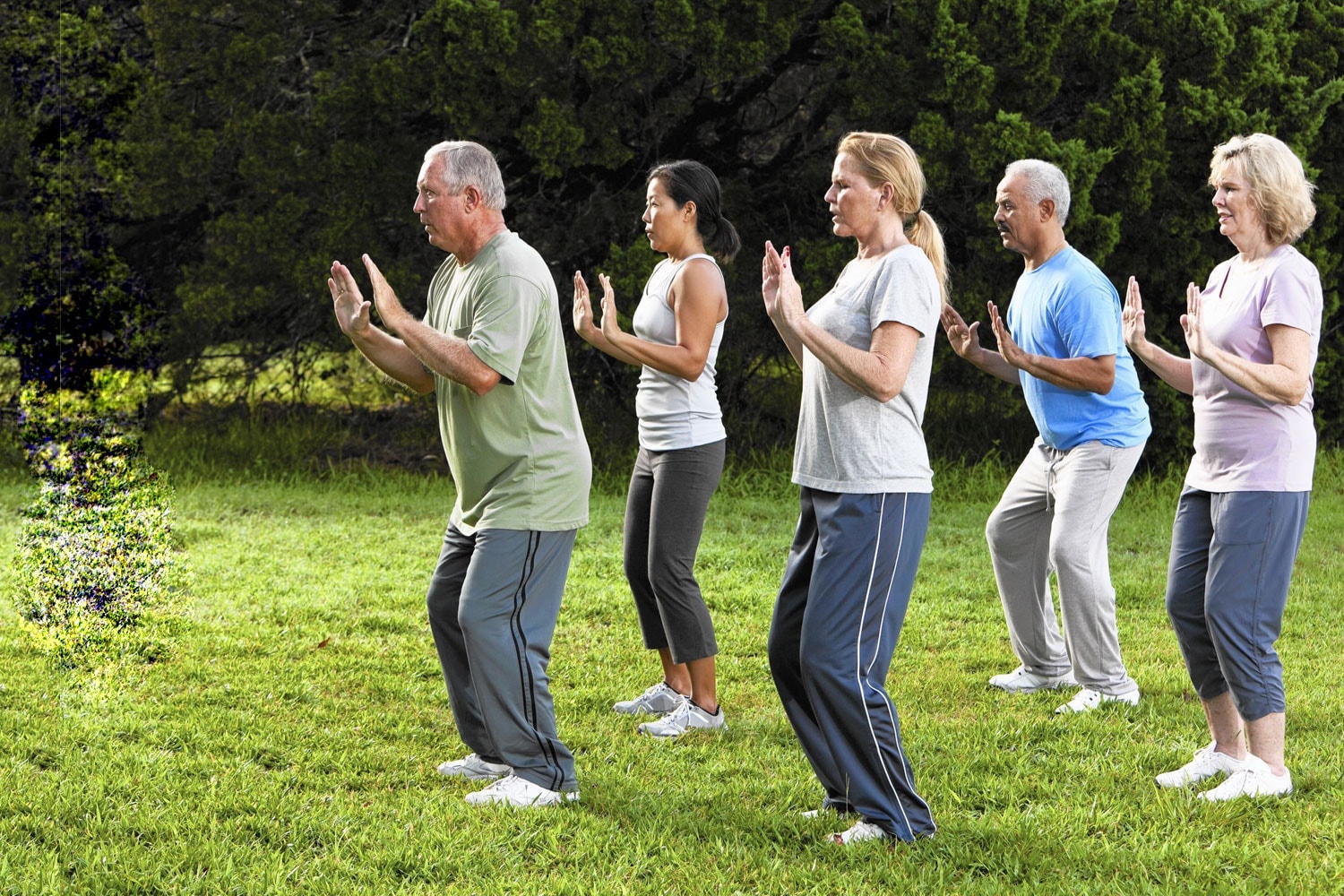
Boosting brainpower with Tai Chi offers many ways to increase your brain and memory. You can easily add it to your daily life and adjust it for different ages.
Integrating Tai Chi into Daily Routines
Start your day with Tai Chi. You can do a quick 10-minute session when you wake up. This can help clear your mind and get you ready for the day. Try Tai Chi breaks at work. Take 5 minutes every few hours to do some simple moves. This can help you stay sharp and focused.
End your day with Tai Chi. A short practice before bed can help you relax and sleep better. You can also mix Tai Chi with other activities. Try doing some moves while waiting in line or watching TV.
Tailoring Tai Chi for Different Age Groups
For kids and teens, make Tai Chi fun. Use games and challenges to keep them interested. This can help improve their focus and memory. Adults can use Tai Chi to manage stress. It’s a great way to unwind after a busy day. You might find it helps you think clearer at work.
Older adults can benefit from Tai Chi. It can improve your balance and memory. Start with seated Tai Chi if standing is hard. For seniors, Tai Chi can boost your mental well-being. It may help you feel happier and more connected. Join a class to meet new friends and stay social.
Complementary Activities and Cognitive Training
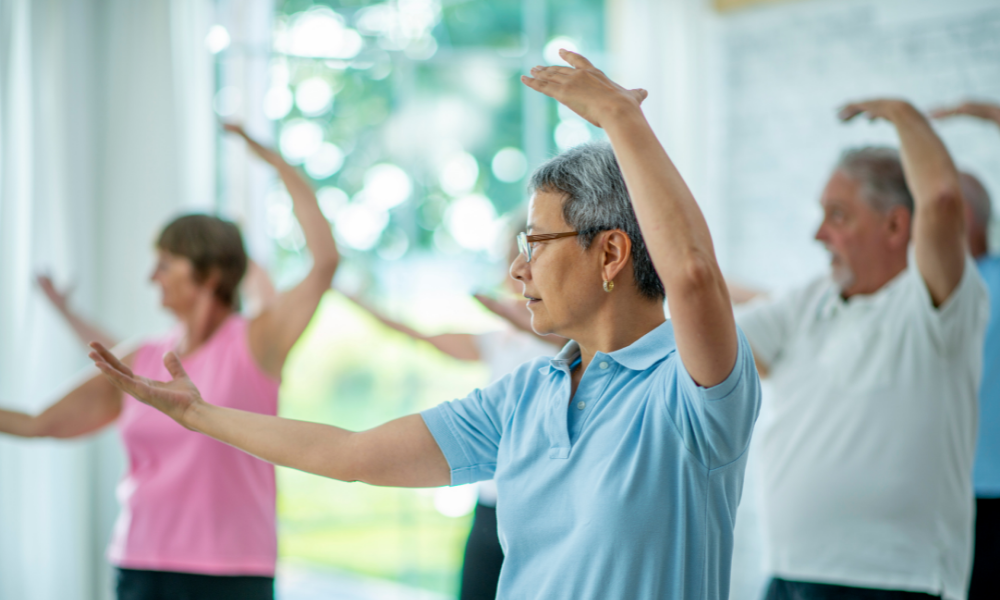
Boosting brainpower with Tai Chi can be even more powerful for your brain when paired with other activities. Adding different types of exercise and mindfulness practices can boost your mental abilities even further.
Combining Tai Chi with Other Forms of Exercise
You can enhance your cognitive benefits by mixing Tai Chi with other forms of exercise. Walking and resistance training are great options to pair with your Tai Chi practice. These exercises can help improve your executive function, which is your ability to plan, make decisions, and multitask.
Try adding a brisk walk before your Tai Chi session. This can get your blood flowing and wake up your brain. After Tai Chi, you might do some light weightlifting or bodyweight exercises. This combination can help boost your cognitive flexibility and concentration.
Meditation and Mindfulness Practices
Meditation and mindfulness can take your Tai Chi practice to the next level. These practices can help sharpen your awareness and focus. You can add a short meditation session before or after your Tai Chi routine. Try focusing on your breath for 5-10 minutes. This can help calm your mind and improve your concentration.
You can also practice mindfulness during your Tai Chi movements. Pay close attention to how your body feels as you move. Adding word games or puzzles to your routine can boost your brain. For example, try spelling words backward while doing Tai Chi.
Research and Future Directions
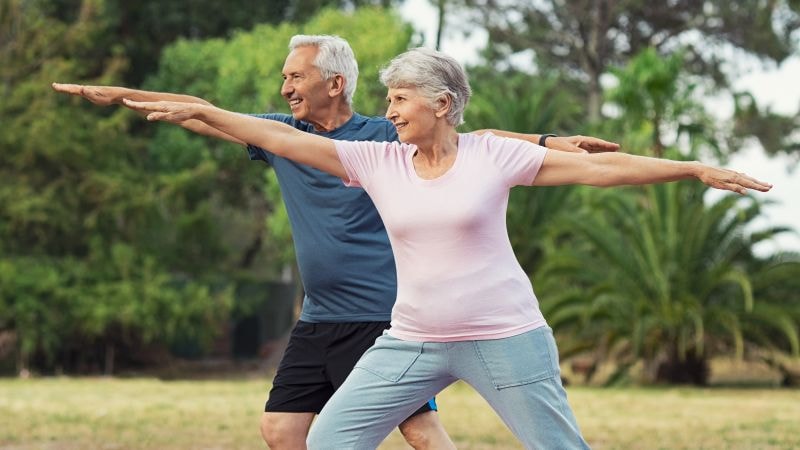
Tai Chi shows promise for boosting brainpower with Tai Chi and overall brain health. Scientists are looking into how it helps memory and thinking skills. They also want to know if practicing Tai Chi for many years can keep your mind sharp as you age.
Ongoing Research on Tai Chi and Cognitive Health
Studies are checking how Tai Chi affects your brain. Scientists use memory tests and brain scans to see changes. Some research examines how Tai Chi compares to other exercises for your mind. One study found that Tai Chi may improve executive function. This helps you plan, focus, and switch between tasks.
Another study showed that doing Tai Chi with word games can boost your memory. Researchers are also looking at how Tai Chi might help with Alzheimer’s disease. They want to see if it can slow down memory loss or improve thinking skills in older adults.
Understanding the Long-Term Benefits
Scientists are curious about the lasting effects of Tai Chi on your brain. They’re studying people who have practiced for many years to see if their minds stay sharper. Research suggests regular Tai Chi practice might improve your memory and attention. It could also help with visuospatial skills, which let you understand and remember the space around you.
Long-term studies are tracking how Tai Chi affects brain health over time. They use tests like the Mini-Mental State Exam to measure changes. The goal is to see if Tai Chi can lower the risk of cognitive decline as you get older.
Check out this video on a 4-Minute Tai Chi Energy Boost.
By: Boosting Brainpower With Tai Chi
Elevate Your Mind: How Tai Chi Strengthens Memory and Cognitive Abilities
In conclusion, boosting brainpower with Tai Chi offers a powerful and holistic approach to enhancing memory and cognitive function. This ancient practice, with its gentle movements and focus on mindfulness, promotes physical well-being and engages the mind in a way that fosters mental clarity and resilience. As research continues to explore the connections between Tai Chi and cognitive health, the evidence supporting its benefits grows stronger. Regular practice can improve memory and attention and vital executive functions essential for daily decision-making and multitasking.
For those looking to enhance their cognitive abilities and maintain mental sharpness, integrating Tai Chi into daily routines may prove to be a valuable strategy. Whether practiced alone or in combination with other exercises and brain training activities, Tai Chi provides a unique opportunity to connect the body and mind. By embracing this gentle yet effective form of exercise, individuals can unlock the potential for improved cognitive health and emotional well-being, ultimately leading to a more fulfilling and vibrant life as they age.
Frequently Asked Questions
Can Practicing Tai Chi Lead to Improvements in Cognitive Function?
Yes, Tai Chi can help sharpen your mind. Research shows that regular Tai Chi practice can improve executive function. This includes your ability to multitask, manage time, and make decisions. Tai Chi also seems to boost overall cognitive performance. It may be especially helpful if you’re dealing with mild cognitive issues.
How Does Tai Chi Influence Memory and the Overall Power of the Brain?
Tai Chi can give your memory a boost. A recent study found that doing Tai Chi daily can improve memory function. The slow, mindful movements of Tai Chi engage both your body and mind. This mind-body connection may help strengthen brain pathways and improve overall brain power.
Is There Evidence to Support the Use of Tai Chi for Patients With Dementia?
Tai Chi shows promise for people with dementia. Studies suggest it can positively affect global cognitive functions in this group. It may help with skills like visuospatial awareness and semantic memory. Tai Chi could be a helpful addition to care plans for dementia patients.
What Are the Benefits of Tai Chi for Those at Risk of Alzheimer's Disease?
If you’re at risk for Alzheimer’s, Tai Chi might help. It can improve cognitive function and memory, often affected by Alzheimer’s. Tai Chi also reduces stress and promotes relaxation. These benefits may help protect brain health and potentially lower your Alzheimer’s risk.
How Does Tai Chi Contribute to Neuroplasticity in the Brain?
Tai Chi may boost your brain’s ability to change and grow. This is known as neuroplasticity. The complex movements and focus required in Tai Chi challenge your brain. This mental workout can help create new neural connections and strengthen existing ones.
Reignite Your Fitness Journey Post-55!
Hello, fitness lovers! Explore the path to renewed energy and well-being with Fit After 55! Whether you’re a seasoned pro or new to the fitness scene, our platform is your go-to resource for total health and wellness. From creating manageable goals to celebrating your progress, we’re here to guide you in redefining what it means to thrive after 55. Join our website and connect on Facebook today to unleash your full potential with Fit After 55!

